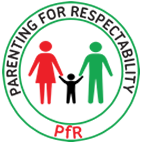Why is this evaluation important?
The precious investment made so far to develop PfR programme has provided incredibly important data on what makes an intervention acceptable and relevant to local communities. Further, early indicators from the pilot suggest that the PfR programme holds promise in promoting positive social norms and skills around parenting and spousal relationships. The formative evaluation of the programme with 4 groups has clarified how the intervention is perceived in terms of relevance and acceptability, the best way to recruit parental groups and sustain participation, especially participation of fathers, the best way to negotiate access with local leaders, and how to continue to monitor, mentor and support facilitators. A further two groups are currently being recruited with whom a 15 session (rather than 21 session) version of the programme will be tested. Further investment in a robust evaluation will help us to test varying combinations of elements of the programme to provide further evidence of the acceptability in different contexts, plausibility of the measures, the intended mechanism of change and the effects of the intervention on key outcomes associated with SGBV and child maltreatment. The PfR programme holds promise for reducing child maltreatment



